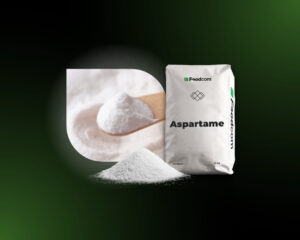- Acerola is exceptionally rich in vitamin C and also contains vitamin A, B vitamins, polyphenols, and minerals.
- Acerola is added to juices, beverages, jams, yogurts, and snacks, helping to maintain freshness and extend product shelf life.
- Due to its high vitamin C content, acerola is a popular ingredient in cosmetics, aiding in the fight against free radicals and slowing the aging process of the skin.
- Acerola is used in dietary supplements and pharmaceutical preparations for its antioxidant properties and high vitamin C and citric acid content.
Acerola is a plant with a wide range of applications in various industries. Its antioxidant properties are particularly valued in the pharmaceutical, food and cosmetic industries. It is added to foods, including juices, beverages, jams, marmalades, and dairy products such as yogurts. Acerola powder is also a popular ingredient in baked products and snacks such as energy bars. Let’s take a detailed look at the properties and uses of this valuable fruit.
Origin and characteristics
Acerola, also known as the cherry of Barbados or the cherry of the Antilles, is a tropical shrub native to Central and South America and the Caribbean. The plant belongs to the Malpighiaceae family. Acerola reaches a height of 2 to 5 meters, with glossy, dark green leaves and small, pink or white flowers. Its fruits, resembling small cherries in appearance, are bright red, juicy and have a characteristic sour taste.
Rich chemical composition
Acerola is extremely rich in vitamin C (ascorbic acid) and this characteristic distinguishes it the most. The vitamin C content of the fresh fruit ranges from 1,400 to 2,500 mg per 100 grams. In addition to vitamin C, acerola also contains:
- Vitamin A Beta-carotene (provitamin A).
- B vitamins, such as thiamine (B1), riboflavin (B2), niacin (B3)
- Polyphenols, or anthocyanins, flavonoids, proanthocyanidins
- Citric acid and other organic acids
- Minerals, including iron, calcium, phosphorus, potassium, magnesium
- Proteins and amino acids
Acerola in meat processing
The Barbados berry is used in the production of meats and meat products, including cold cuts, sausages, canned meat and prepared meat dishes. It can be added in powder or extract form. One of the main advantages of acerola is its high content of ascorbic acid (vitamin C). In meat processing, vitamin C is valuable for its antioxidant properties. Antioxidants are important in retarding the process of fat oxidation, which is a major factor in meat spoilage. The aforementioned oxidation leads to unpleasant odors, changes in taste and deterioration of meat quality. Adding acerola powder to processed meats helps preserve freshness and extend the shelf life of products.
Acerola use in cosmetics
There is a reason why acerola powder is a popular ingredient in personal care products. The main reason it is so valued in cosmetics is its extremely high vitamin C content. Vitamin C is one of the most powerful antioxidants that help fight free radicals and delay skin aging. Free radicals, which are byproducts of metabolism and exposure to environmental pollutants, can cause damage to skin cells, leading to wrinkles, loss of elasticity and other signs of aging. Regular use of cosmetics with acerola helps neutralize these harmful effects.
Preparations with this cherry from Barbados are used to reduce hyperpigmentation, pigmentation spots and acne scars. Products containing acerola are particularly effective for tired and dull skin, for the reason that they add radiance and freshness. Vitamin C from acerola also plays an important role in collagen synthesis, which helps maintain the youthful appearance of the skin.
Other ingredients such as carotenoids, polyphenols and bioflavonoids have moisturizing and protective properties, helping the skin to stay hydrated and forming a barrier against harmful external factors. This makes the skin more resistant to environmental stresses such as UV radiation and pollution. Cosmetics with acerola are free of parabens, silicones and other harmful chemicals, making them safe and gentle even for sensitive skin. The essence of acerola can be used in serums, moisturizers, masks, toners and even makeup products
Acerola in the pharmaceutical industry
Acerola, like other plants with antioxidant properties, is widely used in the production of pharmaceuticals. Dried and powdered acerola, thanks to its high content of vitamin C and citric acid, has become an effective addition to pharmaceutical preparations designed to promote health and improve quality of life.
Acerola is available in various forms that are used in pharmaceutical products. The most popular of these are extracts and powders, which can be found in dietary supplements, tablets, capsules, syrups and health drinks. Thanks to its antioxidant properties, the Barbados berry is also added to therapeutic cosmetics to help protect the skin from the damaging effects of free radicals and UV radiation.
In addition to its high vitamin C content, acerola also contains significant amounts of citric acid (7.8-10.2%), which supports its antioxidant effects. Citric acid works by chelating, i.e. removing metal ions, thus protecting cells from oxidative stress. This synergistic combination of ascorbic acid and citric acid makes acerola an extremely effective natural antioxidant.
What should I look for when choosing acerola powder for my production?
One of the most important aspects to consider when choosing acerola powder is the vitamin C content. It is also worth checking the product specifications to make sure that the vitamin C content is at a level that meets industry standards. The quality of acerola powder largely depends on the purity and naturalness of the product. Avoid products that contain additives, preservatives or artificial colors. Ideally, powdered acerola should be 100% natural, with no additives. It is also important that the powdered product has food safety certificates.
Acerola substitutes
If powdered acerola is not available, consider other natural sources of vitamin C and antioxidants. Alternative options may include plant extracts of rosehip, sea buckthorn or black currant or guava.
A reputable supplier – choose Foodcom S.A.
It probably doesn’t take anyone to convince you that it’s a good idea to work with reputable suppliers who have a proven track record of delivering high-quality products. Foodcom S.A. is just such a supplier. Remember, suppliers that offer transparency and traceability of acerola are more trustworthy.










